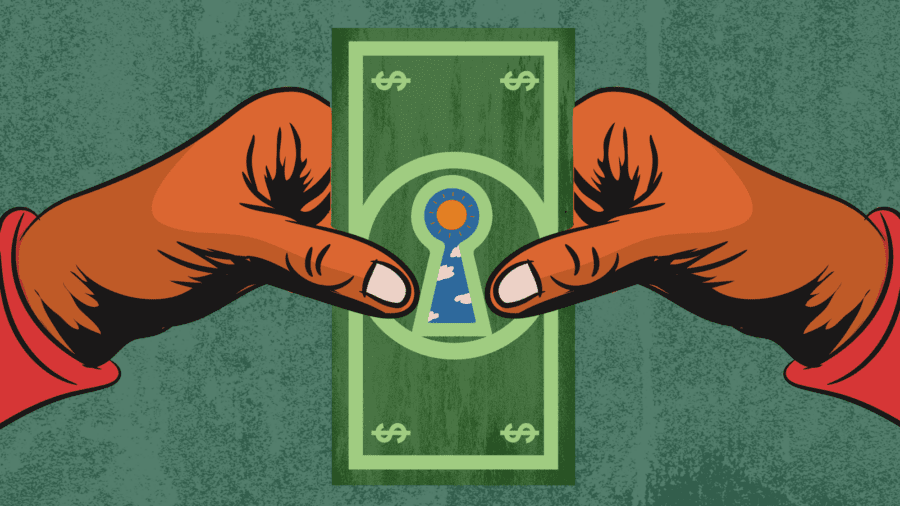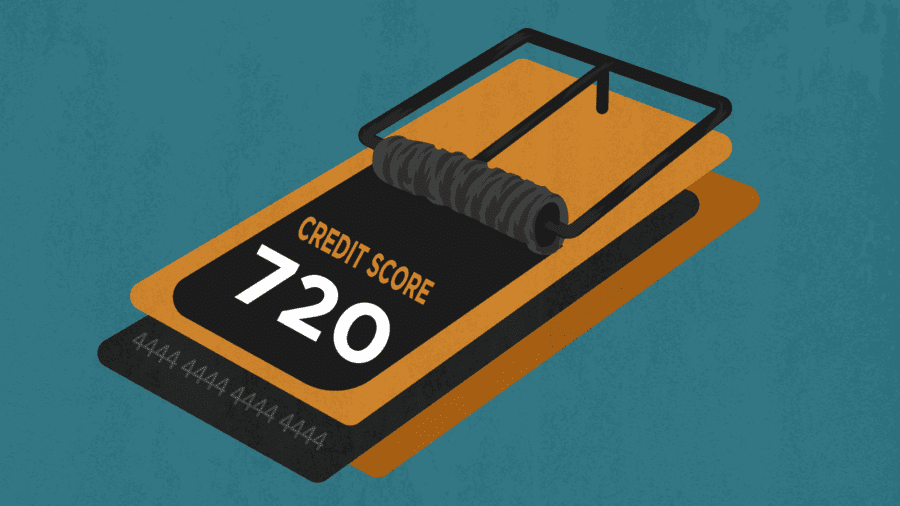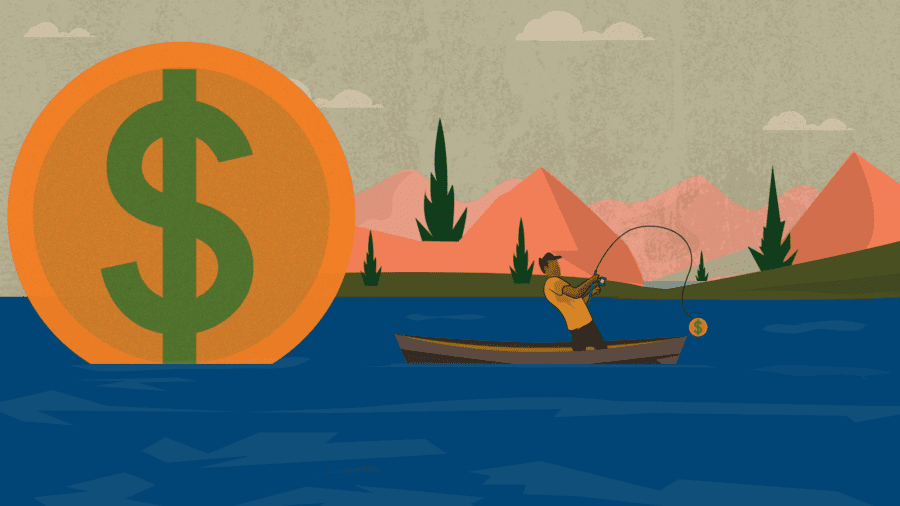
10 Money Management Tips to Scale Your Wealth
How are you preparing for a secure financial future?
The unpredictability of life has a tendency to target our finances, whether it’s news of becoming a new parent or a once-in-a-lifetime chance to see your favorite band on a farewell tour. These events can negatively impact our lives if we never learn how to manage our money properly. From cutting out unnecessary spending to investment strategies, some money management tips may seem obvious at first, while others could change the course of your finances forever.
We often think that financial decisions belong to the bankers and accountants when in reality, they start in our own hands. Before we jump into these money management tips, let’s discuss what personal finance actually is and why it’s important for our day-to-day lives.
What Is Personal Finance?
Personal finance is a term that refers to the management of your money as well as investments, budgeting, and retirement planning. It encompasses one’s financial goals and is entirely dependent on the individual’s financial situation. This means some of our goals may differ from one another — for instance, young parents may be saving for a child’s college fund while another couple is investing in a retirement plan. Since few schools offer courses on money management, it’s important to do our own research on how to manage our money and develop our own strategies to scale our wealth. Here are 10 money management tips to help you do just that.
#1: Understand Your Financial Situation
This first tip may fly under the radar for some as we may be under the impression we already understand our financial situation because, after all, it is our money!
However, the simple process of sitting down and recording all of our monthly expenses can reveal which avenues we need to focus on to achieve financial greatness. Physically writing out every monthly expense or even keeping receipts of purchases can shed light on otherwise overlooked expenses. Whether it’s overspending on groceries or recurring subscription payments, having a record of every dollar spent sitting in front of us can be a wake-up call.
There is no need to shoulder this task all on your own. With money-saving apps, such as Mint (see #2), it becomes easy to track all of your expenses in one place moving forward.
#2: Create a Budget
Budgeting is one of the most common ways to begin managing your money and helps provide people with a concrete outline for where their money needs to go and where it’s currently going.
How do we create a budget for ourselves? A popular and effective strategy for budgeting is the 50/30/20 rule.
50% of your income after taxes goes towards essentials, such as rent, gas, and food.
30% of your income goes towards secondary spending, such as dining at restaurants or purchasing non-essential household items.
20% of your remaining income goes to emergency funding or planning for the future, such as investing into a Roth IRA retirement fund.
If this task seems daunting, you are not alone! The word budgeting often leaves a negative taste in one’s mouth, but there are tons of ways you can make it fun. For example, there are plenty of money-saving apps available to download on your smartphone to help aid with budgeting. Apps such as Simplifi, Trubill, and Personal Capital are great ways to keep track of all your spending in one place and teach you how to make a budget. These apps update your financial data in real-time, allowing you to always know where your finances stand.
#3: Take Advantage of a Bank’s Online Resources
In this digital age we are living in, several banks have online resources for their customers to take advantage of. In fact, many banks have their own apps available for download on your smartphone, while almost all banks have some degree of online banking capability.
Among many, one useful resource that most banks allow is the option to transfer a portion of your income directly into your savings account. This allows you to automatically save money without having to transfer money yourself from one account to the other. Since this happens automatically, you don’t run the risk of forgetting to transfer money into your savings account.
#4: Cut Out Unnecessary Spending
We all are guilty of a shopping spree, impulse buys, or a treat to ourselves now and again. While there’s nothing wrong with treating yourself, it’s important to notice when these unhealthy spending habits become consistent and infringe on the stability of your finances.
Eating out was shown in a recent survey to be a main source of frequent unnecessary spending amongst Americans. The survey revealed that 56% of Americans dined out three times a week, while 10% dined out as frequently as once a day.

A simple and effective way to avoid spending money dining out is to meal prep. By meal prepping, you can plan and prepare your meals a week in advance instead of eating unhealthy fast food on your lunch break.
Late fees were also shown to be a consistent expenditure for many Americans. Many companies offer the setup of automatic payments to keep your bills paid on time and avoid any late fees. It is also becoming more and more common for companies to allow you to pay what you can at the time of your bill date with no added interest. This can be particularly helpful if all of your monthly expenses are being charged at the same time.
#5: Utilize Credit Cards
While it may have been common for many of us to grow up under the guidance that credit cards are dangerous and a good way to end up in debt, they also are a great way to aid in your budgeting as well as build your credit. The main danger in using credit cards comes from being irresponsible with your spending, which can be stifled by using one of the many money-saving apps available. Over time and with responsibility, the use of credit cards will improve your credit score and, in many cases, earn rewards, such as cashback from your credit card provider.
Join In 200 Million+ On The Journey to Greatness
#6: Pay Off Debt
Paying off debt such as student loans can seem daunting, but it is a necessary step to achieve financial stability. Thankfully, there are several resources to help with making loan payments easier, such as Federal repayment plans.
Graduated repayments gradually increase your monthly loan payments over 10 years, allowing you to start off with a smaller payment while you invest income elsewhere.
Extended repayments can allow you to stretch your repayment plan for as long as 25 years.
Income-driven repayments will limit your loan payment to 10% or 20% of your income and are also dependent on family size. The first step is to fill out an application on the government website, where you can find a loan simulator to help you estimate exact amounts for your financial situation and discretionary income.
#7: Plan Regular Progress Reports
Even if we consider ourselves financially responsible and even use money-saving apps, it’s a good idea to check in with ourselves regularly and make sure we are sticking to our goals and financial plans. Life can be unpredictable and it can be hard to be prepared for unexpected expenses, so scheduling a specific time to assess our financial standing will not only keep us on track but will ease any anxieties that come with planning for the future.
An easy way to incorporate this into your life if you have a partner is a money date! Much like planning a progress report for yourself, a money date is a scheduled time to sit down with your partner and discuss finances. This discussion can range from what your plans are on spending or saving money in the future to any credit card debt you may have obtained in the past. Some may find this subject difficult to confront with a significant other, but rest assured that a potentially awkward conversation is worth it in the long run.
#8: Start an Emergency Fund
Speaking of the unpredictability of life, one of the most detrimental things that can happen to our finances is an unexpected emergency. You just never quite know when the next unexpected thing is coming around the corner to wreak havoc on all that money you have saved, from a popped tire to water damage on your house that insurance won’t cover. It is impossible to foresee these things before they take place, but it is possible to be prepared.
A recent survey revealed that 60% of participants did not have enough money saved to pay for a $1,000 emergency, and of all those who did have an unexpected emergency, the average bill was $3,500.
Not having a strong emergency fund can set us back a great deal when trying to invest or plan for our retirement. Many financial advisors recommend a minimum of three months’ worth of living expenses stored in an emergency fund, with six months being ideal. If this seems like an impossible task right now, don’t stress out. Instead of staying focused on the final goal, the important thing to do is to create a system that works for you that will allow you to have a savings account that is untouchable, except for emergencies. If possible, create an automatic system in a money management app or your banking software that automatically draws money into your emergency fund.
#9: Execute Investment Strategies
Investment is defined as committing a certain amount to an endeavor with the expectation of earning a profit. Instead of letting your finances be consumed by unnecessary spending, investing allows us to put money toward your future and potentially grow it over time. Investment does not come without risk, however. There is always the chance we’ll lose our money after investing it, which is why it is important to have a budget already set up as well as an emergency fund in order before taking the dive into investing.
Investing through an employer is a great way to start out with a smaller budget. Investing into a retirement fund through an employer starts as 1% of your income before taxes, with the option to increase the percentage over time. It is also common for employers to allow investment in the company’s stock as well as into a 401k account.
Investment apps like Acorns can be highly accessible if you are new to the investing world. Acorns rounds up all of your daily purchases and puts that spare change into a diversified portfolio created by a financial expert, easily allowing you to start investing even if you are unfamiliar with the stock market. A $3 monthly fee and a simple questionnaire are all that stand in your way of investing with Acorns.
It is always important to speak with a trusted financial advisor before making any big decisions regarding investing.
#10: Create a Retirement Plan
Unfortunately, schools do not often offer courses on how to start a retirement plan. Even if retirement seems far away, research suggests we will need 80% of our current salary in retirement. Different employers offer different options, so it’s important to research the differences between the many types of retirement plans and decide which is best for you.
A benefit of contributing to your retirement is the possibility to reduce your income tax if you choose a plan that is tax-advantaged such as an IRA. Be sure to take note if your employer offers to match your contribution into your retirement fund and begin investing as soon as possible.
Overwhelmed with Financial Decisions? Take a Deep Breath!
The process of sorting out your financial situation and making healthy changes to your life can definitely cause a certain amount of stress. Make sure to take these steps at your own pace and align your strategies with what works best for your life. We are all different and have different needs and goals, so allow yourself the space to really figure out the most important things for yourself and plan accordingly.
Above all, don’t forget to have a healthy money mindset — if we treat money as something negative or scary, then we most likely won’t take care of it responsibly. However, if we see money as a way to achieve freedom, we’ll be much more intentional in how we use it.
Greatness Authors
Greatness Authors is a collection of writers, thinkers, curiosity experts, and students of the world who are committed to bringing you the most up-to-date, impactful, and inspiring information surrounding Greatness topics.

Before You Retire, Ask Yourself These 7 Financial Questions to Make Sure You’re in the Clear

The *New* Way to Market Your Business on YouTube & Best Practices for Higher Engagement

The Power of Masterminds to Grow Your Business and How to Find One Near You

4 Inspirational Stories That Prove Money Isn’t the Key to Happiness

A Beginner’s Guide to Building a Great Credit Score While Avoiding Debt and Common Credit Mistakes











